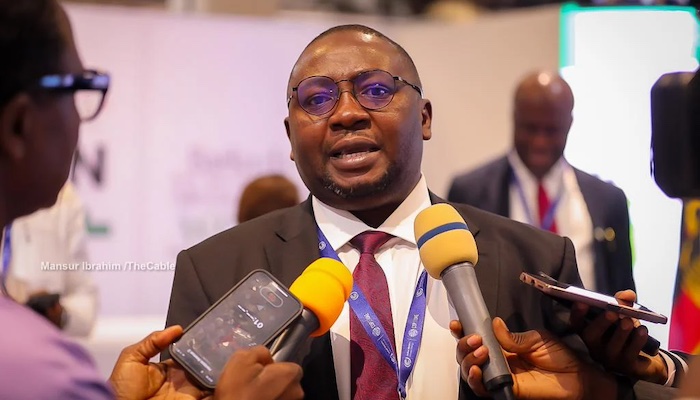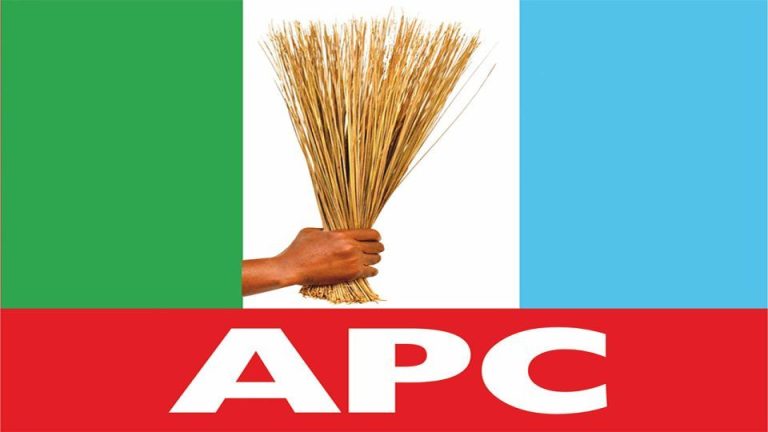
The Minister of Power, Chief Adebayo Adelabu, on Monday, gave what seemed like a scorecard in his over two years in the saddle, stressing that as a result of the federal government’s reforms, revenue collected by Distribution Companies (Discos) is set to hit N2 trillion by the end of 2025.
Speaking in Abuja during an expert forum tagged, “Uninterrupted Power: The Industrial Imperative, “at a programme organised by the Nigeria Economic Summit Group (NESG), Adelabu said that over 700mw additional transmission capacity had been achieved under his watch.
Adelabu admitted that the federal government was acutely aware of the cost pressures faced by businesses as a result of inadequate and unreliable grid supply, reason why the government is prioritising strategic investments in key infrastructure to ensure stable and predictable power delivery, particularly to commercial and industrial customers who are willing to pay for availability, reliability, and quality of supply.
He highlighted the implementation of the ‘Light Up Nigeria’ project which is a federal government initiative to boost industrialisation by providing reliable electricity nationwide, noting that it aims to deliver stable power to key industrial clusters. The initiative, he said, has already been launched in Agbara Industrial hub in Lagos State and Enugu State.
In addition to scaling up supply to the industrial clusters, he stated that the government recognised the potential need for a differential tariff or a time-of-use tariff for industries especially at off-peak hours of the grid to encourage increased energy offtake, improved productivity in the economy, and increased job opportunities for our teaming population.
Currently, he stated that the federal government is pursuing a comprehensive, multi-pronged approach to reposition the Nigerian power sector for sustainability, efficiency, and growth, spanning critical pillars which include legislation, policy reforms, infrastructure development, energy transition and access expansion, and local content and capacity development.
He pointed out that the enactment of the Electricity Act 2023 remains a major milestone, providing a robust governance and regulatory framework for the Nigerian Electricity Supply Industry (NESI).
The Act, he said, devolves regulatory powers to the states, enables subnational markets, promotes competition, and empowers private participation across the value chain, representing a clear shift towards a liberalised and investment-friendly electricity market.
Since its passage, he revealed that 15 states have received regulatory autonomy to establish subnational electricity markets with one fully operationalised, while stakeholders are working actively with the states to ensure strong alignment between the wholesale market and the retail market.
According to him, the ministry has developed the Integrated National Electricity Policy, approved by the Federal Executive Council (FEC) in February, with its accompanying Strategic Implementation Plan now being finalised to harmonise existing policies and provide a coherent roadmap for sustainable sector growth.
This, the minister stressed, marks the first comprehensive, sector-wide policy framework in nearly two decades, while on sector commercialisation, the government was deepening power sector commercialisation to strengthen revenue, liquidity, and investor confidence.
“Through tariff policy reforms which enabled cost-reflective tariffs for select consumers, supply reliability has improved while reducing energy costs for industries, and industry revenue has increased by 70 per cent to N1.7 Trillion in 2024 compared to previous year and the revenue is expected to exceed N2 Trillion for 2025. To stabilise the market, Mr. President has approved a N4 trillion bond to clear verified Genco and gas supply debts.
“Alongside this, a targeted subsidy framework is being developed to protect vulnerable households and ensure a sustainable path toward full commercialisation tion and viable industry. In the area of infrastructure development, the federal government has introduced targeted national programs aimed at accelerating the viability, expansion, and modernisation of the national grid.
“Under the phase zero of the Presidential Power Initiative (PPI), we enhanced transmission capacity, grid stability, and overall system reliability, with over 700mw of additional transmission capacity already achieved. Under the PPI Phase One, contracts have been signed with Siemens Energy, CMEC, Elswedy Electric, and Power China. Financing arrangements are underway to support implementation. Phase one is planned to add 7000mw operational capacity to the grid.
“In parallel to the grid expansion, generation capacity is being expanded through the rehabilitation of existing NIPP plants to unlock about 345mw, alongside the successful integration of the 700mw Zungeru Hydropower Plant into the grid. Collectively, these interventions have helped sustain an average generation capacity of approximately 5,300mw in 2024 up from 4,200mw recorded in 2023,” the minister said.
Additionally, Adelabu emphasised that the federal government has operationalised the Presidential Metering Initiative (PMI) to close the national metering gap and improve sector viability.
“Already, N700 billion has been secured from FAAC to deploy 1.1 million meters by end of 2025, and 2 million annually over the next five years under the PMI. This complements the 3.2 million meters being procured through the World Bank’s DISREP programme, positioning Nigeria to close the metering gap within five years and strengthen transparency and revenue assurance across the value chain,” he added.
To advance Nigeria’s energy transition and access goals, the federal government, he said, is leveraging bilateral funding and development finance to de-risk investments and attract private participation for access expansion across underserved and unserved communities, educational institutions, healthcare facilities and government institutions.
According to him, in the past two years, over $2 billion has been mobilised through key facilities, including the $750 million World Bank DARES programme for off-grid and mini-grid expansion, the $500 million NSIA RIPLE platform to unlock private capital for renewables, and the $190 million JICA fund to complement DARES.
Collectively, these interventions, Adelabu said, are accelerating renewable energy deployment and expanding reliable, affordable power across the country.
“Finally on local content and capacity development, the ministry recently commissioned new training equipment, simulation infrastructure, and two workshop blocks with 104-room hostel accommodation at the National Power Training Institute of Nigeria (NAPTIN) to strengthen technical capacity across the sector.
“These facilities were delivered in partnership with development partners. Additionally, a landmark agreement was signed between the Rural Electrification Agency (REA) and Oando Clean Energy for a 1.2GW solar power project with a recycling line to promote sustainability in solar panel deployment.
“ Our ultimate goal is to increase local content in the electricity value chain and ensure continuous capacity development to drive sustainability of the sector,” Adelabu stated.
Meanwhile, Blooming has reported that Nigeria is in talks with China’s Export and Import Bank for a $2 billion loan to build a new super grid to reduce power shortages that have curtailed economic growth for decades.
The new power line will serve the eastern and western regions of the country where most industrial consumers are situated, Bloomberg quoted Nigeria’s Minister of Power, Adelabu, as having said in Abuja on Monday.
“It’s part of plans to decentralise power generation in Nigeria” and get the heavy commercial users that left the power grid because of its unreliability to return, he said.
Talks with China Eximbank are advancing, the minister’s team said in response to Bloomberg questions.
Firms operating in Africa’s most populous nation face frequent power-supply disruptions. While the nation’s power generation capacity is about 13 gigawatts, the central grid can distribute only a third of that to the country’s more than 200 million people. Even then, the grid fails frequently. South Africa, with a population that’s a quarter of that, has about 70 gigawatts of installed generation capacity.
The situation has forced many firms to exit the national pool with self-generated power accounting for nearly half of the electricity consumed in the nation. The new super grid will help ensure that more of the generated power goes to the nation’s industrial zones.
The financing for the new super grid has already been approved by the cabinet, Adelabu said.
Nigeria has initiated several significant reforms since Tinubu came to power in 2023 to boost economic growth. They include eliminating fuel subsidies that drained government finances for decades, overhauling tax laws and increasing crude output by improving security in its main producing region.
Tinubu has also allowed power firms to increase tariffs for some urban consumers to improve the financial viability of the sector.
Emmanuel Addeh



